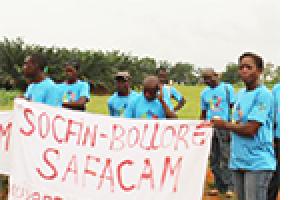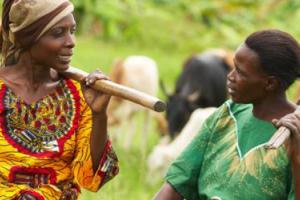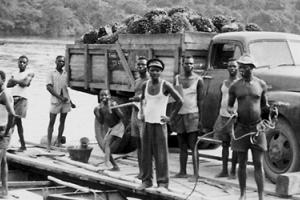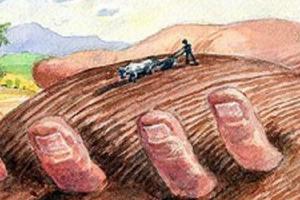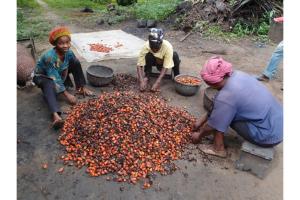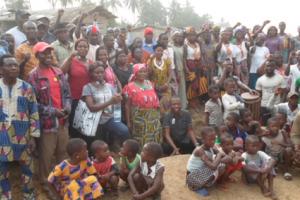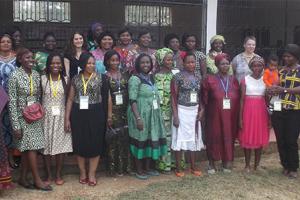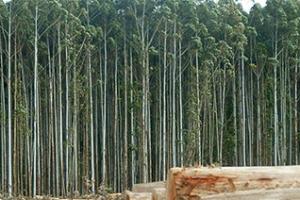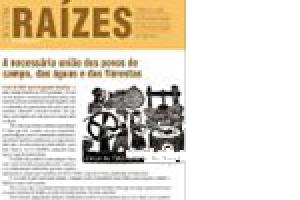Socapalm and Safacam are two companies controlled by Socfin, a multinational agribusiness specialized in the cultivation of oil palm and rubber. The group has financial and operating companies in Belgium, Luxembourg and Switzerland, which manage plantations in a dozen African and Asian companies. The group's aggressive expansion policy has led to land-grabbing, causing serious impacts on local communities' living conditions.
Large-Scale Tree Plantations
Industrial tree plantations are large-scale, intensively managed, even-aged monocultures, involving vast areas of fertile land under the control of plantation companies. Management of plantations involves the use of huge amounts of water as well as agrochemicals—which harm humans, and plants and animals in the plantations and surrounding areas.
Bulletin articles
13 July 2016
The agricultural force on the continent
In Cameroon as in many African countries, women daily endure practices that could be considered discriminatory in various areas of society, and especially related to land ownership. “In our family, a woman is a good, like a house or a plantation,” said Léon Mba, leader of the Pamue Congress in 1949. (1)
Bulletin articles
13 July 2016
Oil palms are native to the forests of Central and West Africa and inseparable from the region’s peoples and their cultures. Communities in this part of the world have relied on oil palms for thousands of years— as a source of food, textiles, medicines and construction materials.
Other information
13 July 2016
A video produced by GRAIN shows how rural women in West Africa are working to protect traditional palm oil production in the face of the destructive expansion of industrial oil palm plantations.
Watch the video here.
Action alerts
9 June 2016
Dear friends, we ask for your support.
Our colleagues from the No2Bidco Campaign in Uganda and Kenya have contacted us to request support for their struggle against Bidco Africa. This multinational company -in a joint venture with Wilmar International- owns among others, the OPUL oil palm plantation and a palm oil refinery on the Lake Victoria island of Bugala, Uganda.
Other information
15 April 2016
Women, communities say NO to the expansion of oil palm plantations and industrial palm oil
Other information
15 April 2016
We are 40 participants who have united in Mundemba, Cameroon, for an international workshop on the tactics and strategies of oil palm companies, from 28 to 31 January 2016. We have gathered to share our experiences from Cameroon, West and Central Africa, Asia and South America, and to understand the realities of the local communities in Ndian Division, Southwest Region of Cameroon.
Other information
15 April 2016
Women resist industrial palm oil (Photo: JVE-Cameroun)
Considering that the aspiration to human dignity is a common ideal for humankind, and that the United Nations Charter asserts this aspiration in its preamble and in the Universal Declaration of Human Rights;
Declarations
30 March 2016
Declaration by the World Rainforest Movement (WRM), March 2016
To Berta Cáceres and the Lenca People, the struggle continues!
Bulletin articles
21 March 2016
Other information
21 March 2016
The December 2015 Raíces newsletter focuses on the problems arising around approval and regulation of the Legal Framework on Biodiversity, and the impacts of this new law. In this recent rush to privatize nature and traditional knowledge, government and business groups have teamed up to introduce the legalization of biopiracy—under new labels.
